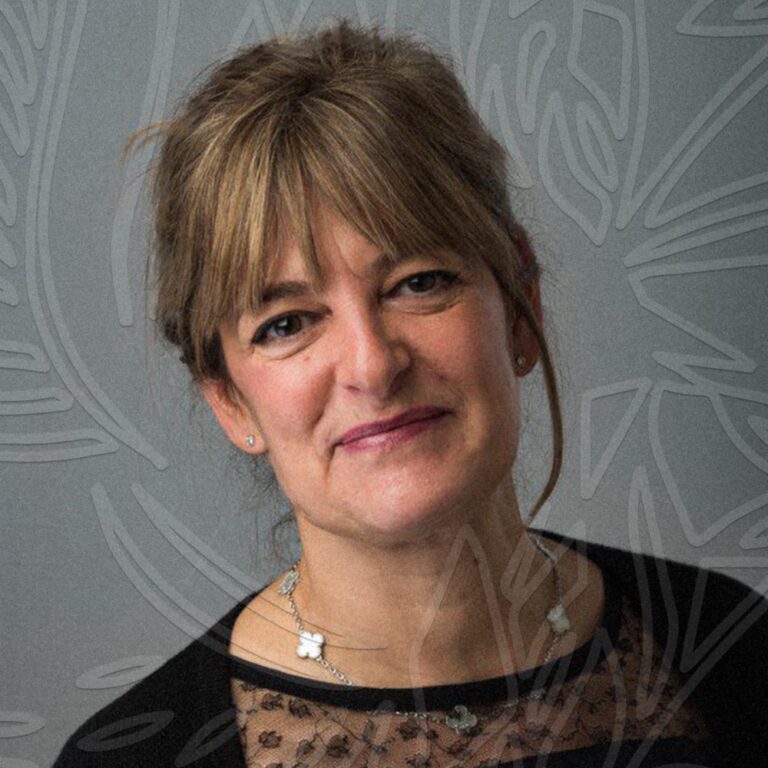In this episode of “Decolonisation”, Catherine Fieschi, a political expert and director of the international advisory firm CounterPoint, reveals how populism is shaping advanced democracies and markets across the globe.
In this interview, Catherine discusses the rise of contemporary left and right populism, exploring how it shapes the global response to the Russian invasion of Ukraine. The discussion also explores how populism is challenging European unity, which obstacles Ukraine faces in shifting Western perceptions, and the vital role Eastern European nations play in reshaping the dialogue around global democracy.
You’ve been researching populism since before it became a mainstream topic. Could you tell us what drew your attention to populism back in the early 1990s?
During my time as a PhD student, I sensed that significant changes were coming, especially in advanced democracies. By the early 1990s, populism was already evident in France. Jean-Marie Le Pen founded the Front National in 1972, and by 1984, they were competing in European and local elections. What stood out was how extreme-right movements began using new rhetoric and political strategies to push nationalist and anti-immigration ideas. In Europe, particularly by the 1980s, populism started gaining traction as these groups adapted their approach to appeal to broader audiences.
The National Front
A French far-right political party established in 1972 with a focus on nationalist and anti-immigration rhetoric. Initially led by Jean-Marie Le Pen and later by his daughter Marine Le Pen, the party rebranded itself as the National Rally in 2018 to better advocate against globalisation and multiculturalism.In your book “Populocracy”, you discuss your PhD research, which focused on the Front National and Le Pen himself. I found your portrayal of his character particularly interesting because populism often relies on personality and emotional appeal rather than rational decision-making. Could you explain why you chose to focus on Le Pen and why he’s significant in understanding modern populism?
I decided to focus on Jean-Marie Le Pen because he was a pivotal figure in reintroducing nationalist and far-right rhetoric in Western Europe, which many thought had become taboo after World War II. Le Pen was one of the first in the region to bring these ideas back, rejecting technocracy and rational policy in favour of emotional appeal. He tapped into darker elements of French political culture, breaking the post-war consensus built on Western values and multilateralism. Le Pen’s disdain for the US and its influence, particularly the Pax Americana (the US-dominated world order based on democratic values, capitalism, and the US-led institutions such as the United Nations and NATO – ed.), was striking, as he saw it as an imposed settlement. His approach opened up a broader contestation of these ideas, reflected in modern populism today, including its rejection of Western-led support for Ukraine.
Technocracy
A political and economic approach where decision-makers are chosen for their expertise and efficiency in specific areas, especially within scientific and technical fields, rather than ideological affiliation.Both Jean-Marie Le Pen and Marine Le Pen have shown support for Vladimir Putin, even though they aren’t closely aligned now. They’ve both expressed views that don’t see Russia as an enemy, with both supporting the 2014 annexation of Crimea — Marine Le Pen even referred to it as “reunification”. What specific Russian narratives do they promote, and why do these narratives resonate with their supporters?
This is a great question with multiple layers. First, there’s a clear rejection of both the US and the European Union, which they see as too aligned with the US. Essentially, anyone seen as an enemy of the US is viewed as a friend. Another key element is their anti-NATO stance. They echo Russian rhetoric by claiming that NATO broke promises and encroached on Russia’s space, framing the support for Ukraine as a NATO land grab. For them, NATO symbolises multilateralism, which they reject because it contradicts their concept of national sovereignty. Interestingly, their view on sovereignty is flexible. Although they defend national sovereignty when opposing EU interference, they align with Russia’s perspective, suggesting that NATO challenges Russia’s sovereignty. This flexibility allows them to shift the concept to suit their narrative, whether it’s opposing the EU or defending Russia’s actions in Ukraine and Crimea. The core message aligns with Russian ideas around NATO, sovereignty, and multilateralism.
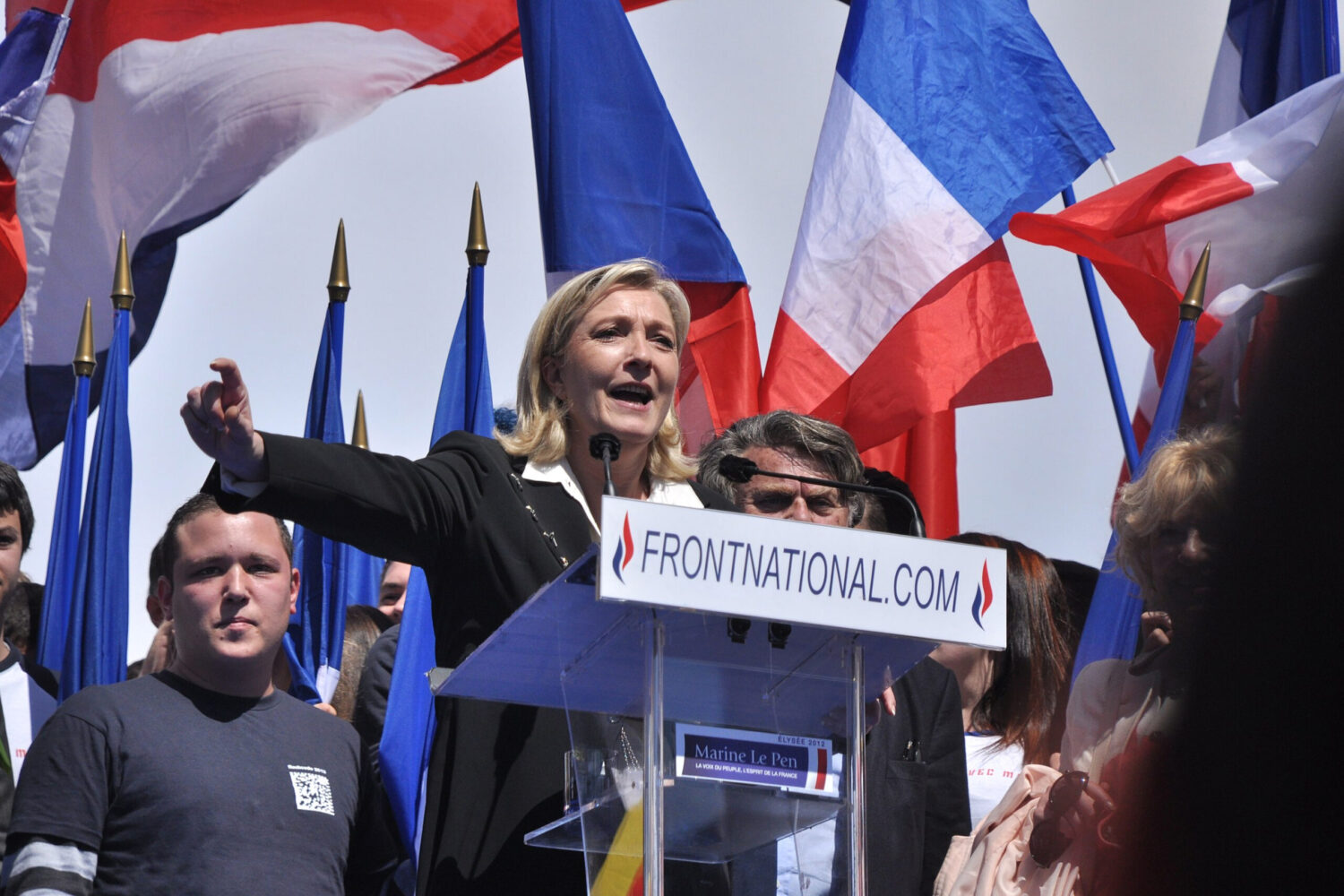
Marine Le Pen's speech during the election campaign, 1 May 2012. Source: Blandine Le Cain.
How do you define when populism transitions from being just a political approach to becoming an ideology? And how do you explain this shift?
Populism was traditionally seen as tied to a charismatic leader, especially in early studies rooted in Latin America with figures like Juan Perón and Eva Perón. It was often viewed as a leader claiming to represent “the people” or as a communication style focusing on emotional appeal, demagoguery, and specific rhetoric. Many scholars have been reluctant to define populism as an ideology because it appears on both the left and right sides of the political spectrum. For example, in France, you see populism on the right with Marine Le Pen’s National Rally and on the left with La France Insoumise (a political movement in France established in 2016 with an emphasis on social justice, environmental sustainability, and economic equality – ed.) under Jean-Luc Mélenchon. Populism appears on both the left and right, which has made it seem less like a traditional ideology. Typically, ideologies are seen as belonging to one side, but populism challenges that view. What defines an ideology, though, is having a clear objective and action plan. Populism, whether left or right, seeks to remove the mediation of representative institutions between the people and their leaders. It pushes for a form of direct democracy, often through referendums, bypassing traditional representatives. This approach emphasises the will of the majority, which can be dangerous in diverse societies with strong minorities that need representation. An example is the Brexit referendum, where 48% opposed the outcome, but the 52% majority carried the decision forward without real negotiation. In such complex societies, imposing the will of a simple majority can create problems. This shows why populism is more than just a communication or leadership style — it’s a political approach that contradicts what modern democracies need, which are more nuanced and sophisticated forms of representation. This way, populism can be seen as a distinct and potentially harmful ideology, not just rhetoric.
Juan Perón
An Argentine president who held office for three terms, with his most significant tenure from 1946 to 1955. He founded the rightist Peronist movement, which focused on social justice, labour rights, and nationalism, advocating for the empowerment of the working class and the reduction of foreign influence in Argentina’s economy.In Ukraine, we often discuss far-right populists like Jean-Marie Le Pen, but we rarely talk about the far left, which is also problematic. In Populocracy, you explain that Jean-Luc Mélenchon from La France Insoumise is a populist, but Jeremy Corbyn from the UK’s Labour Party is not. Could you explain the distinction between them and how you differentiate populism on the left?
Populism can be used to describe various phenomena, but it’s important to distinguish it from mere popularity. Jean-Luc Mélenchon is a left-wing populist who, like Marine Le Pen, believes that the government is controlled by corrupt elites. However, Mélenchon’s populism lacks the anti-immigration and nationalist elements typical of right-wing populism. Instead, he emphasises anti-capitalist and anti-elite sentiments more broadly, targeting bankers, journalists, and other elites. In contrast, Jeremy Corbyn, while also left-leaning, did not advocate for a revolutionary change in the regime. Corbyn aimed to reform the Labour Party and improve institutional arrangements rather than calling for a fundamental transformation like Mélenchon’s proposal for a Sixth Republic. Thus, while there are similarities between them, Mélenchon’s approach is more radical and disruptive compared to Corbyn’s reformist stance.
The Sixth Republic
A hypothetical political system proposed by the French left, aiming to reform the current Fifth Republic, established in 1958, by limiting presidential power and enhancing decentralisation, direct democracy measures, and economic equity.You’ve discussed how populists use the “common sense” reasoning, applying simplistic logic to complex issues like immigration or war. For example, they might argue that not providing weapons in a conflict will end the war. Why do you think this kind of oversimplified logic still resonates with people, even in countries with a high level of political culture and a long history of democracy?
Populists often claim that democracy has been overtaken by technocrats who are too focused on complex policies to understand the basics of democracy. They argue that technocrats use this complexity to make ordinary people feel they should just trust their decisions. In contrast, populists use “common sense” as a powerful tool, opposing the rationality of technocracy. Common sense is seen as an instinctive, emotional reaction rather than a product of detailed analysis. Populists also use common sense to identify who they consider part of the “real people”. They suggest that true members of the public, such as ordinary French, Dutch, or Hungarian citizens, have an innate understanding of issues without needing deep analysis. Thus, common sense serves as a critique of technocratic complexity and a way to distinguish their supporters from others.
Populists use the concept of “common sense” as an emotional appeal, often presenting issues as if they are widely supported, even if they are not. In your book, you discuss how populists don’t always choose topics that have broad support; instead, they frame these issues to appear popular. This manipulation makes it seem like their views reflect the will of the majority, even when that is not the case.
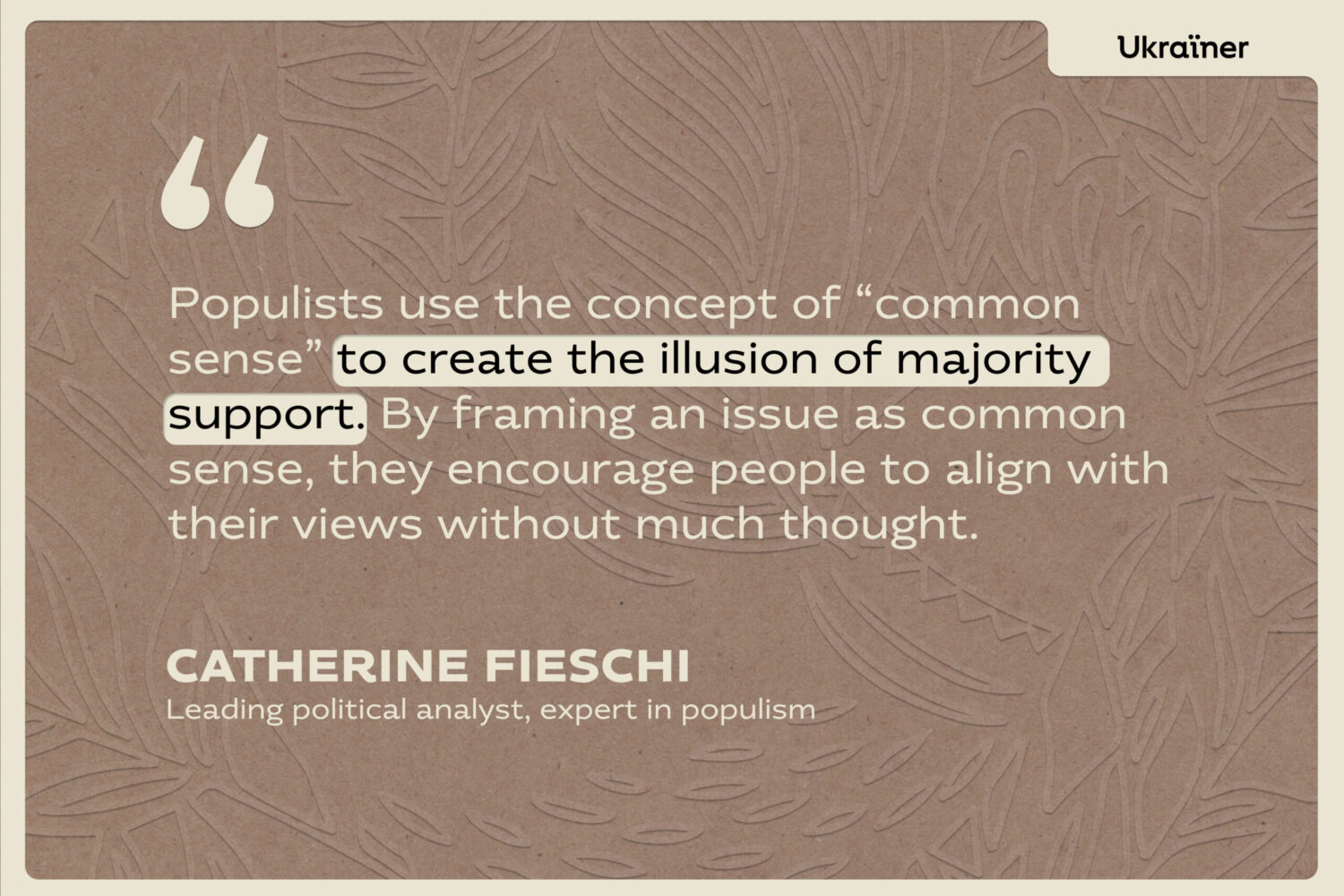
Populists use the concept of “common sense” to create the illusion of majority support. By framing an issue as common sense, they encourage people to align with their views without much thought. This tactic simplifies complex issues and fosters the perception that their stance represents the majority. For example, in December 2023, a new immigration law in France proposed legalising undocumented immigrants working in sectors with labour shortages. Surprisingly, most National Rally supporters favoured this measure, contrary to what might be expected. Initially, the party opposed it, but they adjusted their stance once they realised their voters supported it. This highlighted how the populist use of “common sense” can sometimes clash with actual public opinion.
An intriguing aspect of populism is how both the far left and far right use rhetoric surrounding colonialism and imperialism, though from different angles. Far-left populists, like Jean-Luc Mélenchon and Jeremy Corbyn, often frame their anti-European and anti-Western sentiments as anti-colonialism. At the same time, they sometimes show support for authoritarian regimes like those of Maduro in Venezuela, Assad in Syria, and Putin in Russia — though not always overtly. Is it due to a lack of education regarding the consequences of such regimes, like those seen in the Soviet Union? Or is it part of a broader strategy, employing the idea of common sense to resonate with their audience?
Both far-left and far-right populists express anti-European and anti-Western sentiments under the guise of anti-colonialism. They may admire different strongmen, yet sometimes their admiration overlaps. This stems from a shared belief that Europe and the West impose their values on the rest of the world. On the far right, this is often directed against Ukraine, framing support for liberal democracy as a Western imposition. On the far left, the rejection of Western values is linked to the historical roots of colonialism. This perspective argues that siding with Ukraine — or not explicitly supporting Gaza — reflects a continuation of colonial power dynamics. Populists on both sides leverage this narrative to assert that countries supporting Ukraine are merely maintaining the old world order while emerging powers like China support Russia or abstain from United Nations resolutions. Despite the complexities involved, they depict this as a broader global stance against colonial powers. However, this perspective risks oversimplifying the debate by rejecting all associated with Western values and multilateralism as inherently colonial. This dynamic was evident in discussions surrounding the recent European elections, where foreign policy topics like Gaza and Ukraine polarised opinions and tied into the broader narrative of colonialism versus emerging global powers.
From a Ukrainian perspective, it’s fascinating how some manage to frame not supporting Ukraine as an anti-colonial stance despite Ukraine fighting against imperialism from modern empires like Russia and China. Historically, it’s clear that Russia and China don’t offer sustainable or democratic alternatives to the West. Yet, they have managed to convince others of their viewpoint. How is this possible?
First, the power of digital culture, especially social media, has transformed the political landscape by fostering tribalism and polarisation. This fragmentation makes it challenging for governments, like those in Germany and France, to maintain stable coalitions. Small parties, often representing only 10-15% of the vote, can hold significant influence and even veto decisions, complicating governance. While polarisation existed before social media, its intensity has escalated, leading to echo chambers circulating conspiracy theories and fostering nonsensical beliefs among educated populations. Public frustration allows these alternatives to gain traction. Another factor is the success of leaders like Jean-Luc Mélenchon in mobilising alienated young Arab voters in France. His anti-colonial rhetoric resonates with their legitimate frustrations and sense of political alienation, particularly around issues like Gaza. While this isn’t the sole reason for his popularity, it contributes significantly to his appeal. Addressing the voices of deeply alienated minorities plays a crucial role in these dynamics, particularly in France.
This reminds me of the Soviet rhetoric, which framed its actions as support for colonised nations, but this was mainly for their gain. Unfortunately, I still hear some leftist academics today asserting that the Soviet Union was genuinely anti-colonial, which is absurd. Similarly, Russia today strives to depict Europe and America as anti-Christian, anti-family, and threatening in various ways, suggesting that Russia is somehow resisting these so-called threats.
We can see Russia using these tactics very effectively in Africa as well. It’s not just about the narrative around Ukraine; they’re actively fomenting unrest on the ground. In the grand tradition of the Soviet Union, Russia is carrying out similar operations in places like Niger and Burkina Faso, employing the same arguments to justify their actions.
Another troubling parallel between modern populists and the Soviet Union is the subtle — or sometimes overt — anti-Semitism. The USSR is rarely examined through this lens, but it had a deeply anti-Semitic undercurrent, much like the Russian Empire before it. I’m fascinated by why anti-Semitism has been such a persistent element in political discourse, both in the West and under communism, and how modern populists are employing it as well.
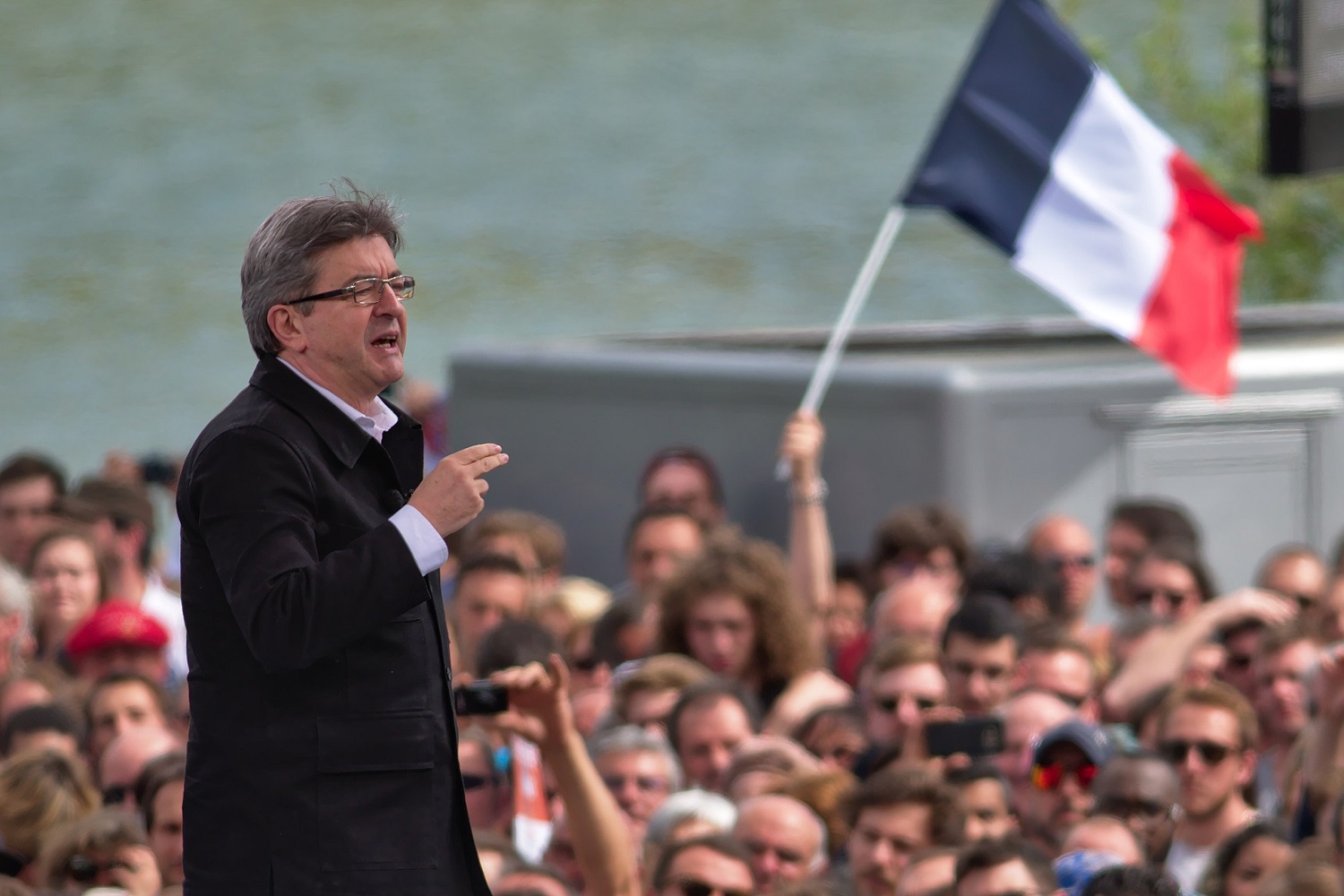
Political meeting of Jean-Luc Mélenchon in Toulouse,16 April 2017. Source: MathieuMD.
It’s interesting that in many Western European nations — much less so in Central and Eastern Europe, where anti-Semitism remains alive — populist stances differ significantly. On the right, figures like Marine Le Pen often focus on weaponising the perceived threat from Muslim countries. For instance, she has aligned with Israel to criticise various Arab states, thus fueling anti-Islam discourse rather than anti-Semitic rhetoric. On the left, however, there’s a more pronounced flirtation with anti-Semitism, particularly in the discourse surrounding figures like Jean-Luc Mélenchon, who faces accusations of anti-Semitism due to his representations of Israel. In contrast, Marine Le Pen, who participated in pro-Israel marches, receives less scrutiny in this regard. In Western Europe, this shift means that to advance anti-Muslim attitudes, there’s less overt anti-Semitism from the right—a notable reversal from the past when anti-Semitic views marked figures like Jean-Marie Le Pen and other far-right parties. Currently, they are more focused on anti-Islam rhetoric, largely tied to their immigration stance. This dynamic differs significantly from populists in Central and Eastern Europe, like Viktor Orbán and Poland’s Law and Justice party, who remain unabashedly anti-Semitic.
Law and Justice
A conservative Polish political party, established in 2001 to promote traditional values, national sovereignty, and a welfare state; Poland's ruling party from 2015 to 2023.The 2024 Venice Film Festival showcased the film Russians at War, created by a filmmaker associated with the Kremlin propaganda channel Russia Today, who failed to acknowledge Russia as the aggressor in her previous work on the war in Syria. Russians are still given a platform despite the risks their government poses to regional security. Why do you think this kind of decision-making continues within cultural and political institutions?
That’s a really good question, and I have to admit I was unaware of this event. A couple of thoughts come to mind. First, it might be an Italian issue. Italy has a unique relationship with Russia and is among the countries where support for Ukraine is relatively weak. There’s a peculiar form of pacifism present, where some believe that by opposing war, they can simply ignore the fact that a country has been attacked. I would have thought that, in most places, the Russian perspective would be less welcome now, and that Russian propaganda would face more scrutiny, but Italy seems quite different. Additionally, Venetian politics is influenced by the League, formerly known as the Northern League, led by Salvini, who is notably pro-Putin. This might help explain this unusual choice. I’m also curious about the presence of Ukrainian representation at the festival. I’m not suggesting that Ukraine should receive equal billing with Russia, but it raises questions about whether Ukrainian voices were included in any capacity.
The Northern League
A far-right Italian party promoting anti-immigration and Euroscepticism; part of Italy’s ruling coalition since 2022.Notably, the film is produced by French-Canadian companies and received funding from Canada, despite the director producing 11 documentaries for Russia Today, sanctioned in these countries. It seems there’s a tendency to frame these issues around freedom of speech and human rights rather than considering the security implications.
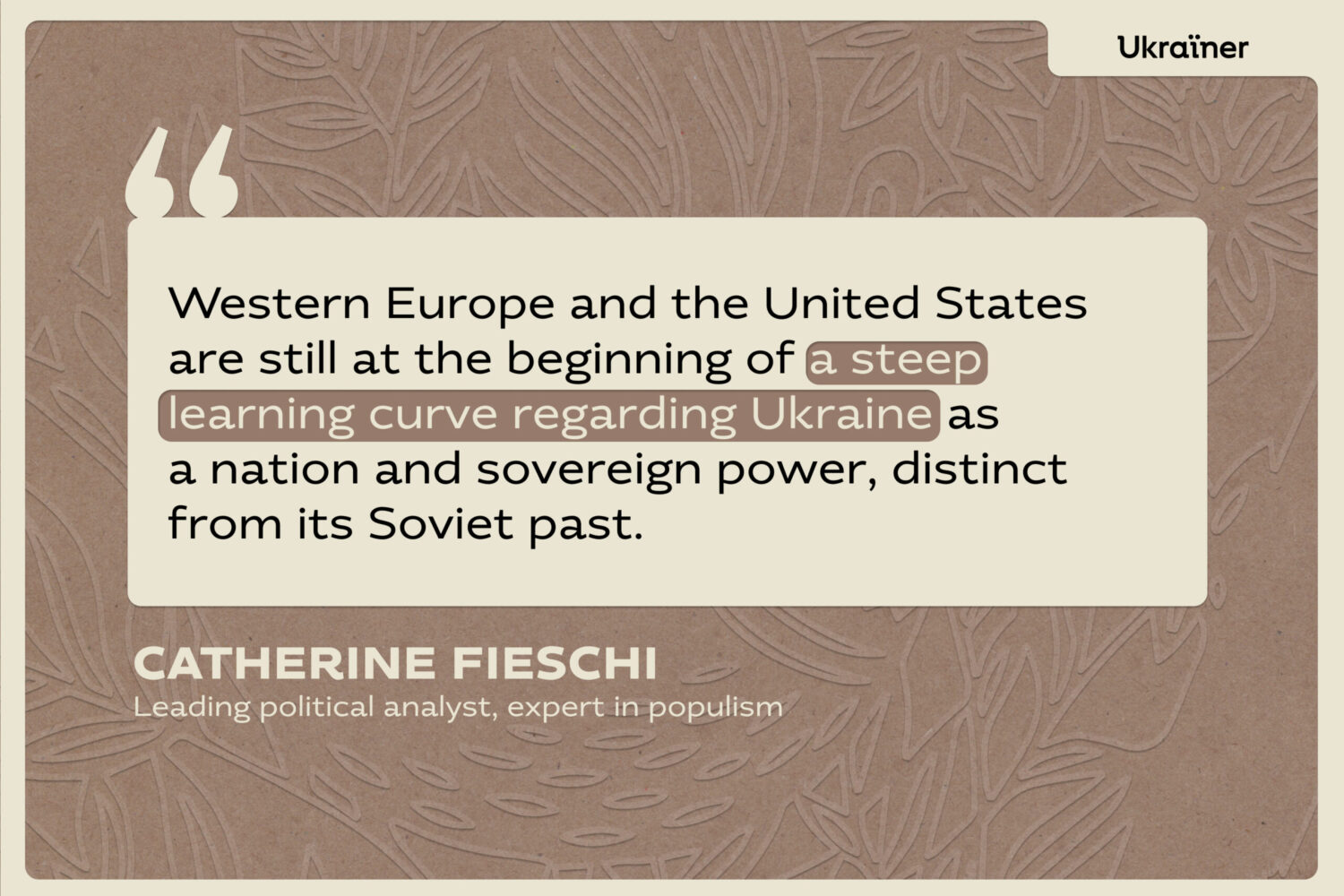
There are several factors at play here. Many cultural institutions still harbour a misplaced sense of neutrality, believing they shouldn’t “punish” artists or take sides. This mindset often leads to a reluctance to target individuals, focusing instead on critiquing regimes. Unfortunately, this approach persists in various cultural institutions, which frequently adopt stances critical of the West and the United States. They often view the US as incapable of nurturing culture from a state perspective, instead seeing it through a capitalist lens and thus labelling it as consumerist. While there’s some truth to these critiques, it results in too many cultural institutions trying to avoid taking a clear stance. Additionally, I’ve observed that Western Europe and the United States are still at the beginning of a steep learning curve regarding Ukraine as a nation and sovereign power, distinct from its Soviet past. This slow acknowledgement of the colonial dynamics imposed by Russia on Ukraine has hindered a proper understanding of Ukraine’s cultural independence. This is likely why the argument for decolonisation resonates so strongly. There’s still a significant gap in Western public opinion regarding Ukraine’s cultural and political status, which deserves recognition and respect. Many institutions, perhaps subconsciously, fail to grant Ukraine the cultural and political recognition it has rightfully achieved.
Ukraine, which is undergoing a painful decolonisation through war, is currently in the spotlight. However, Eastern and Central Europe, which is part of the broader European structure, still face biases stemming from historical and intellectual frameworks in Western Europe. What needs to change to advance these perceptions?
I believe that a better understanding of Ukraine and Central and Eastern Europe is absolutely crucial. I’ve had the good fortune to travel extensively in this region, though I have yet to visit Ukraine. Growing up in my mid-fifties, I transitioned from viewing Central and Eastern Europe as remnants of the Soviet Union to seeing it as an integral part of the European Union in the early nineties. Many people share this journey, yet the unique characteristics of each country in this region remain largely unknown. These nations shifted from being part of one empire in the political imagination to being absorbed into the EU, which is often poorly understood. This enlargement process can feel like a syncretic endeavour, where cultures are assimilated without adequate comprehension. There’s a fundamental ignorance regarding pre-Soviet history, culture, and the distinctions among these countries that we must address. Even before Putin’s rise to dictatorship, it was evident that we lacked sufficient knowledge about the region. It seems as though the curtain was never fully lifted, and many thought there was no need for deeper understanding. The unease surrounding EU enlargement is rooted in various anxieties—like those in France, where some elite perspectives view enlargement as a U.S. strategy to maintain a broad, thin Europe that avoids a cohesive political project. Similarly, the UK exhibited concerns over immigration from Central and Eastern Europe, particularly from Poland, often framed through economic worries. However, as political analysts, we recognised that we were not adequately doing our homework. We assumed that EU membership would erase distinctions and disagreements, but these differences persist.
And do you feel like this Ukrainian perseverance and resilience have motivated Europeans to think about their own countries a little bit more?
I believe this situation has prompted people to reflect on their own countries more deeply, although not always in the constructive ways one might hope for. There’s been a re-examination across various European societies regarding what we cherish, what we’re willing to defend, and what we might be willing to die for. This has brought fundamental questions to the forefront of discussions. For instance, I recall that at the end of March, Macron mentioned that France might consider putting boots on the ground if necessary, which shocked the public. This sparked conversations—some nonsensical, but some quite valuable. Many began asking themselves what they would truly be willing to die for, a question that hasn’t been considered since World War II.
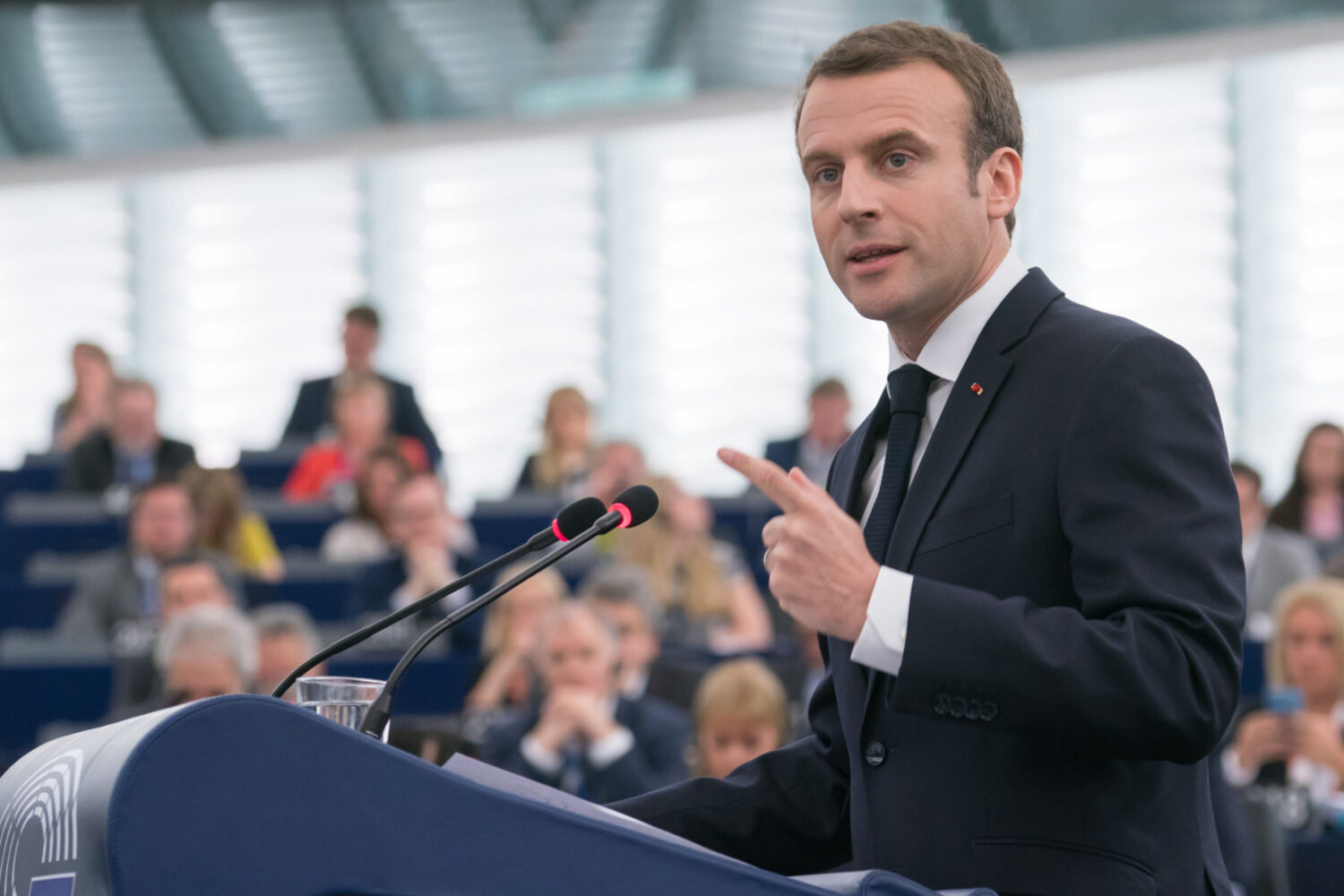
Emmanuel Macron debates the future of Europe with MEPs. Source: European Union 2018.
The courage displayed by Ukrainian civil society and soldiers has jolted parts of the population into this introspection. However, this situation has also led to a kind of “ostrich politics” (refusal to tackle urgent issues, believing that they will resolve on their own – ed.) in some areas, where pacifist sentiments dominate, favouring negotiation to avoid conflict at all costs. Yet, it has reignited discussions about Europe’s role and power — or lack thereof. There’s been increased dialogue about producing more weapons, increasing defence spending, and reassessing relevant borders. The roles of Poland and Germany in protecting Europe have gained significance, particularly with Ukraine acting as a defence buffer against Vladimir Putin. That said, we must avoid reducing Ukraine to merely a buffer zone, even if that has been the reality for over two years. This ongoing crisis has compelled Europeans to rethink their defence priorities, not just about Putin but regarding other potential threats as well. While I hope we can draw valuable lessons from this experience, I sometimes feel disheartened, particularly when Germany and France seem to be falling short in their EU responsibilities for various reasons. Still, I remain hopeful that some meaningful lessons will emerge from this situation. Ukraine needs to assert its presence in various institutions and ensure that its voices are heard. We need to combat the perception that everything behind the Berlin Wall equates to Russia.
A key goal is for Ukraine to transition from being viewed as an object of discussion to becoming a subject in its own right. This means recognising Ukraine as unique and distinct from other narratives. From your perspective in political studies and academia, what areas do you think Ukraine should focus on? What changes are necessary to reduce the influence of Russian narratives in these fields?
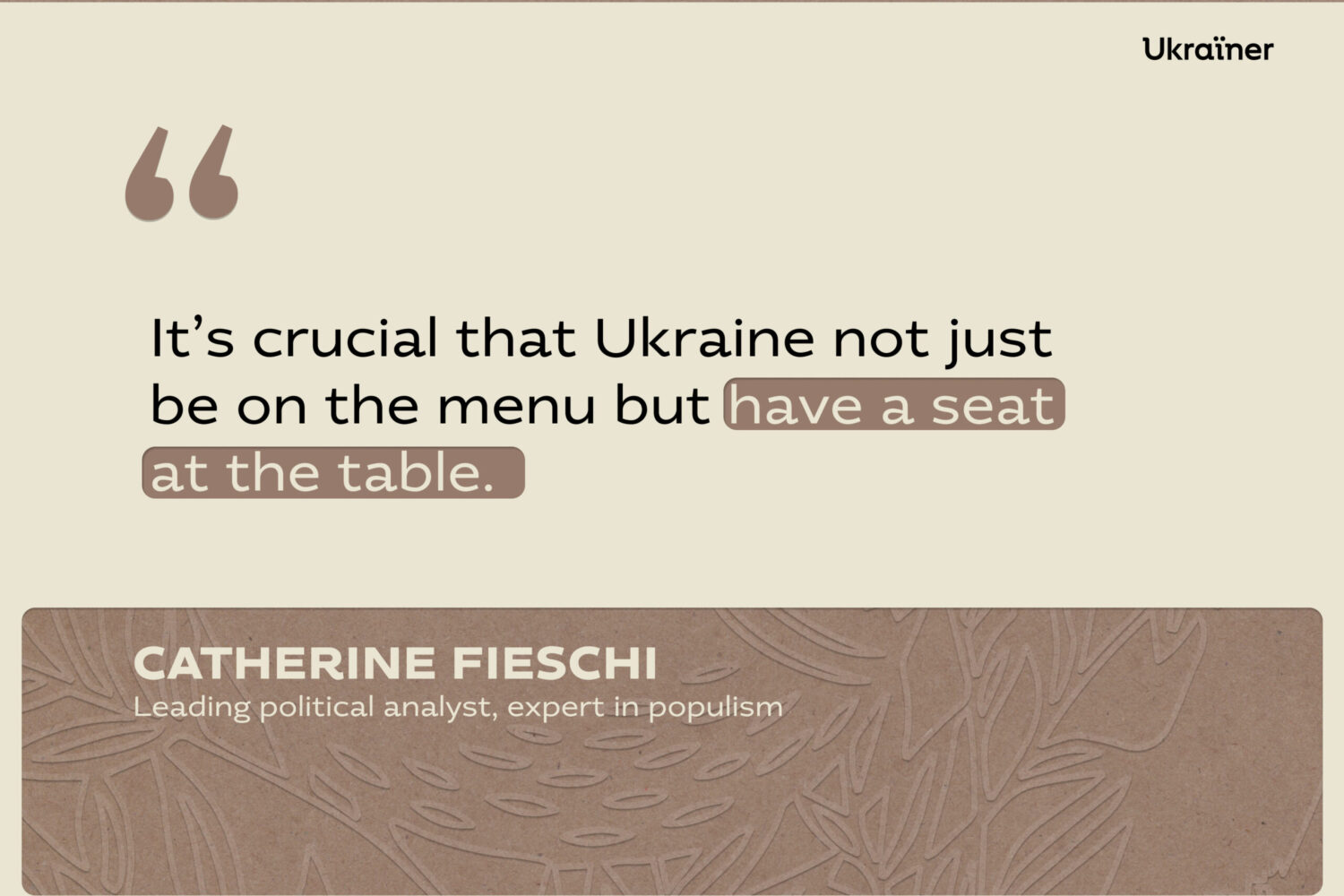
There’s an old expression, which I’m not particularly fond of, but it’s relevant here: since the annexation of Crimea and especially since the [full-scale] invasion of Ukraine, Ukraine has often been treated as something to discuss rather than as an active participant. Zelenskyy has done everything he could to engage in dialogue and negotiations, but understandably, his primary focus remains securing more support and weapons for Ukraine. It’s crucial that Ukraine not just be on the menu but have a seat at the table. This means representation in various cultural institutions, European political forums, and educational organisations. I recognise that these discussions come amid a war, which imposes significant limitations on what Ukraine can invest in and achieve. For those of us outside Ukraine, it’s our responsibility to ensure that Ukrainian political culture, voices, and perspectives are represented in broader discussions. This will help Ukraine exist as a partner in education, culture, innovation, and technology, transforming it from a mere topic of conversation into a subject of dialogue.

